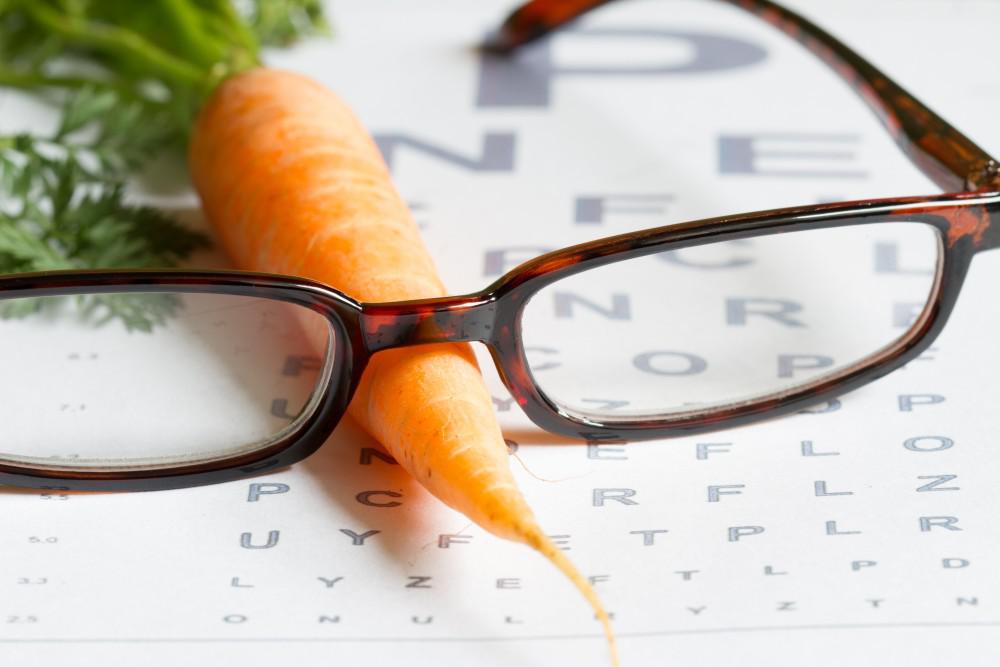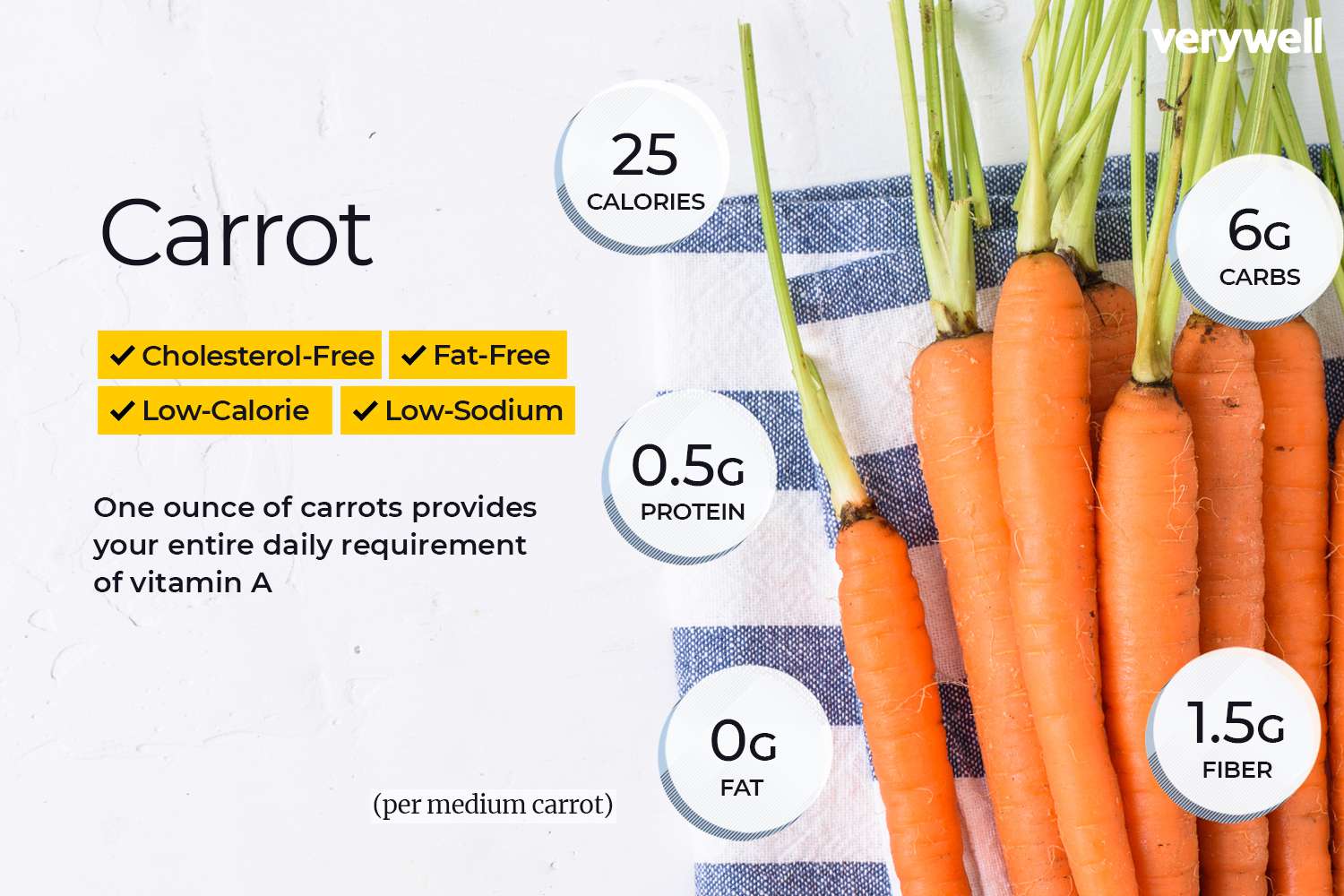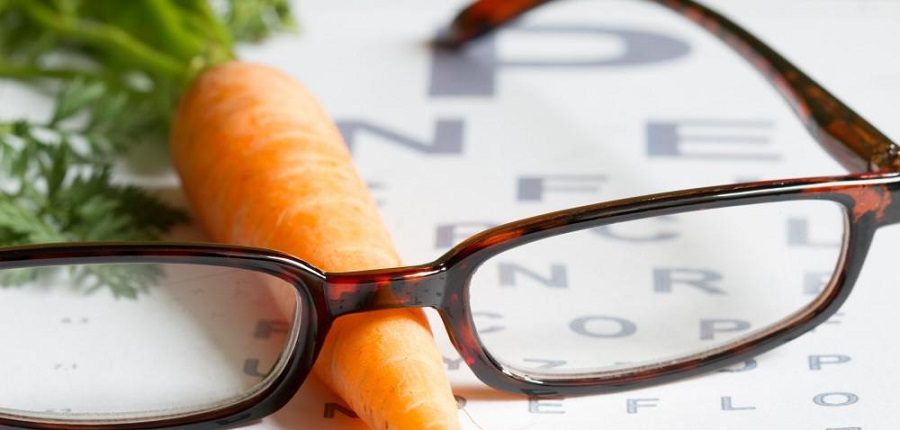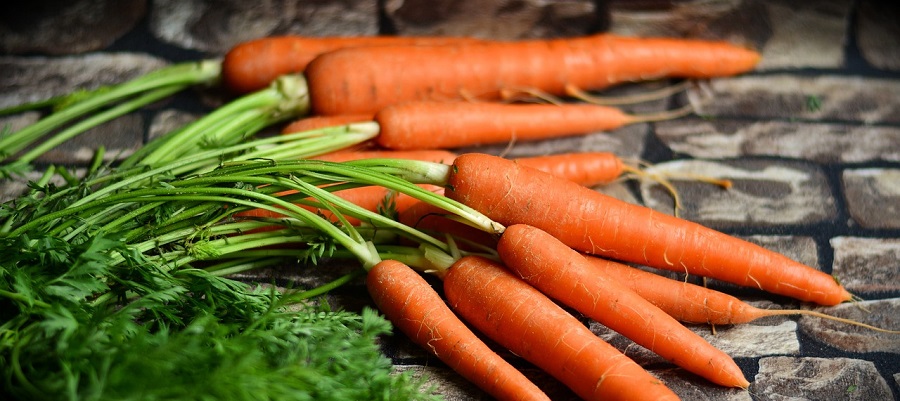Is it true that eating carrots can improve your eyesight?
Yes, eating carrots can improve your eyesight. Carrots are a good source of beta-carotene, which is a precursor to vitamin A. Vitamin A is essential for healthy vision, and a deficiency in this nutrient can lead to night blindness and other eye problems. When you eat carrots, the beta-carotene is converted into vitamin A in the liver and then transported to the retina of the eye. Once in the retina, vitamin A is used to form a pigment called rhodopsin, which is necessary for vision in low-light conditions. Additionally, the antioxidants in carrots can help protect the eye from damage caused by free radicals, which can lead to age-related eye diseases. However, it's important to note that while eating carrots alone is not a guaranteed way to improve eyesight, incorporating them into a balanced diet that includes other fruits and vegetables can help support healthy vision and eye function.
How do carrots help to promote healthy vision?
Carrots help to promote healthy vision due to their high content of beta-carotene, which is a precursor to vitamin A. Vitamin A is essential for the proper functioning of the retina, and a deficiency in this nutrient can lead to night blindness and other vision problems.
Once you eat carrots, the beta-carotene is converted into vitamin A in the liver and transported to the retina of the eye. In the retina, vitamin A is used to form a pigment called rhodopsin, which is necessary for vision in low-light conditions.
Additionally, carrots also contain other beneficial nutrients such as lutein, zeaxanthin, and antioxidants. These nutrients help to protect the eyes from damage caused by free radicals, which can contribute to age-related eye diseases such as cataracts and macular degeneration.
Overall, incorporating carrots into a balanced diet that includes other fruits and vegetables can help promote healthy vision and reduce the risk of vision problems. It's also important to note that maintaining a healthy lifestyle, including regular eye exams, avoiding smoking, and protecting your eyes from UV radiation, can also help maintain good eye health over time.
What other nutrients besides beta-carotene are found in carrots and are important for eye health?
Besides beta-carotene, carrots contain a variety of nutrients that are important for eye health. Some of these include:
-
Vitamin C: Carrots are a good source of vitamin C, which is an antioxidant that can help protect the eyes from damage caused by free radicals. Vitamin C also plays a role in the production of collagen, which is important for maintaining the structure of the eye.
-
Vitamin E: Another antioxidant found in carrots is vitamin E, which can help reduce the risk of age-related eye diseases.
-
Lutein and zeaxanthin: These are carotenoids that are important for maintaining the health of the macula, the part of the retina responsible for central vision. Lutein and zeaxanthin can help protect the macula from damage caused by blue light and free radicals.
-
Potassium: Carrots are a good source of potassium, which can help regulate fluid balance in the eye and prevent the development of glaucoma.
-
Fiber: The high fiber content in carrots can help regulate blood sugar levels, which is important for maintaining good eye health over time.
Incorporating a variety of nutrient-rich foods, including carrots, into your diet can help promote healthy vision and reduce the risk of eye diseases over time.
Can eating carrots actually reverse vision loss caused by aging or other eye conditions?

While eating carrots and other nutrient-rich foods can certainly help promote healthy vision and reduce the risk of certain eye conditions, including age-related macular degeneration, they cannot reverse vision loss caused by aging or other eye conditions.
Once vision loss has occurred, it is often irreversible, and in some cases, it may continue to progress despite changes to diet and lifestyle. However, incorporating nutrient-rich foods such as carrots into your diet can help slow the progression of certain eye conditions and reduce the risk of developing age-related eye diseases.
Additionally, it's important to note that maintaining good eye health is not just about diet. Regular eye exams, avoiding smoking, protecting your eyes from UV radiation, and managing underlying health conditions such as diabetes can also play an important role in maintaining good eye health over time.
How much beta-carotene do you need to consume in order to see an improvement in your eyesight?
There is no specific recommended amount of beta-carotene that you need to consume in order to see an improvement in your eyesight. The amount of beta-carotene needed to support healthy vision can vary depending on individual factors such as age, overall health, and dietary habits.
However, it is generally recommended to consume a variety of nutrient-rich foods that contain beta-carotene and other eye-supporting nutrients such as lutein and zeaxanthin. The American Academy of Ophthalmology suggests that a healthy diet for the eyes should include at least 5 servings of fruits and vegetables per day, including leafy green vegetables, citrus fruits, and carrots.
Incorporating a variety of colorful fruits and vegetables into your diet can help ensure that you are getting enough beta-carotene and other important nutrients to support healthy vision. However, it's important to remember that maintaining good eye health is not just about consuming specific nutrients, but also about adopting a healthy lifestyle overall.
Are there any risks or downsides to consuming large amounts of carrots for your eyesight?
While carrots are generally considered a healthy food and can be a good source of important nutrients for eye health, there are some risks and downsides to consuming large amounts of carrots for your eyesight.
One potential downside is that consuming excessive amounts of carrots (or other foods high in beta-carotene) can cause a condition called carotenemia. Carotenemia is a harmless condition that causes the skin to turn yellow or orange, and it can also cause a similar discoloration of the whites of the eyes. While carotenemia is not harmful, it can be unsightly and may be mistaken for more serious conditions.
In addition, consuming large amounts of carrots (or other foods high in vitamin A) can also lead to a condition called hypervitaminosis A, which can cause a range of symptoms including fatigue, dizziness, nausea, and even hair loss. Hypervitaminosis A can be especially dangerous during pregnancy, as high levels of vitamin A have been linked to birth defects.
While it is generally safe to consume moderate amounts of carrots and other beta-carotene-rich foods as part of a balanced diet, it's important to be aware of the risks of consuming excessive amounts. If you are concerned about your intake of beta-carotene or other nutrients, it's a good idea to talk to your doctor or a registered dietitian for personalized advice.
Can eating carrots alone provide enough nutrition for maintaining good eye health, or should you also incorporate other foods into your diet?

While eating carrots can certainly be beneficial for maintaining good eye health, it's important to incorporate a variety of other nutrient-rich foods into your diet as well. While carrots are a good source of beta-carotene, they do not provide all of the nutrients that are important for maintaining healthy vision.
For example, leafy green vegetables such as spinach and kale are good sources of lutein and zeaxanthin, two antioxidants that are particularly important for protecting the eyes from damage caused by UV radiation and other environmental factors. Fatty fish such as salmon and tuna are also rich in omega-3 fatty acids, which can help reduce the risk of developing age-related macular degeneration.
In addition to these foods, a healthy diet for the eyes should also include a variety of other fruits and vegetables, whole grains, lean proteins, and healthy fats. Drinking plenty of water and avoiding excessive amounts of alcohol and processed foods can also help support good eye health over time.
Ultimately, while carrots can certainly be a healthy addition to a balanced diet, it's important to incorporate a variety of other nutrient-rich foods as well in order to provide your body with all of the nutrients it needs to maintain good eye health.
What are some other lifestyle factors that can help promote healthy eyesight, in addition to eating carrots?
In addition to eating a healthy diet that includes carrots and other nutrient-rich foods, there are several other lifestyle factors that can help promote healthy eyesight:
-
Exercise regularly: Regular physical activity can help improve blood flow to the eyes and reduce the risk of eye diseases such as glaucoma.
-
Protect your eyes from UV radiation: Wearing sunglasses or a hat with a brim can help protect your eyes from harmful UV radiation.
-
Take regular breaks from digital screens: Prolonged use of digital screens can cause eye strain and may increase the risk of eye fatigue, dryness, and other eye problems. Taking regular breaks from screens can help reduce eye strain and improve eye health.
-
Get regular eye exams: Regular eye exams are important for detecting and treating eye problems early, before they become more serious.
-
Manage chronic health conditions: Chronic health conditions such as diabetes and high blood pressure can increase the risk of eye problems such as diabetic retinopathy and glaucoma. Managing these conditions through lifestyle changes and medication as needed can help reduce the risk of eye problems.
By incorporating these and other healthy habits into your daily routine, you can help support good eye health over time and reduce the risk of developing eye problems as you age.
Are there any medical conditions that can be helped or worsened by eating carrots for vision?
While carrots are generally considered a healthy food for promoting good vision and overall health, there are a few medical conditions that may be affected by consuming large amounts of carrots or other foods high in vitamin A and beta-carotene.
For example, individuals with a condition called hypothyroidism may be at increased risk of developing a condition called hypercarotenemia, which occurs when the body accumulates high levels of beta-carotene in the blood. This can cause the skin to turn yellow or orange, and may also lead to other symptoms such as nausea, dizziness, and fatigue.
In addition, consuming excessive amounts of vitamin A from carrots or other sources may be harmful to individuals with certain medical conditions, such as liver disease or a history of kidney stones.
That being said, in most cases, incorporating moderate amounts of carrots into a healthy, balanced diet is unlikely to cause any negative health effects, and may in fact be beneficial for promoting good vision and overall health. However, if you have any concerns about how eating carrots or other foods may affect your health, it's always a good idea to speak with your healthcare provider.


